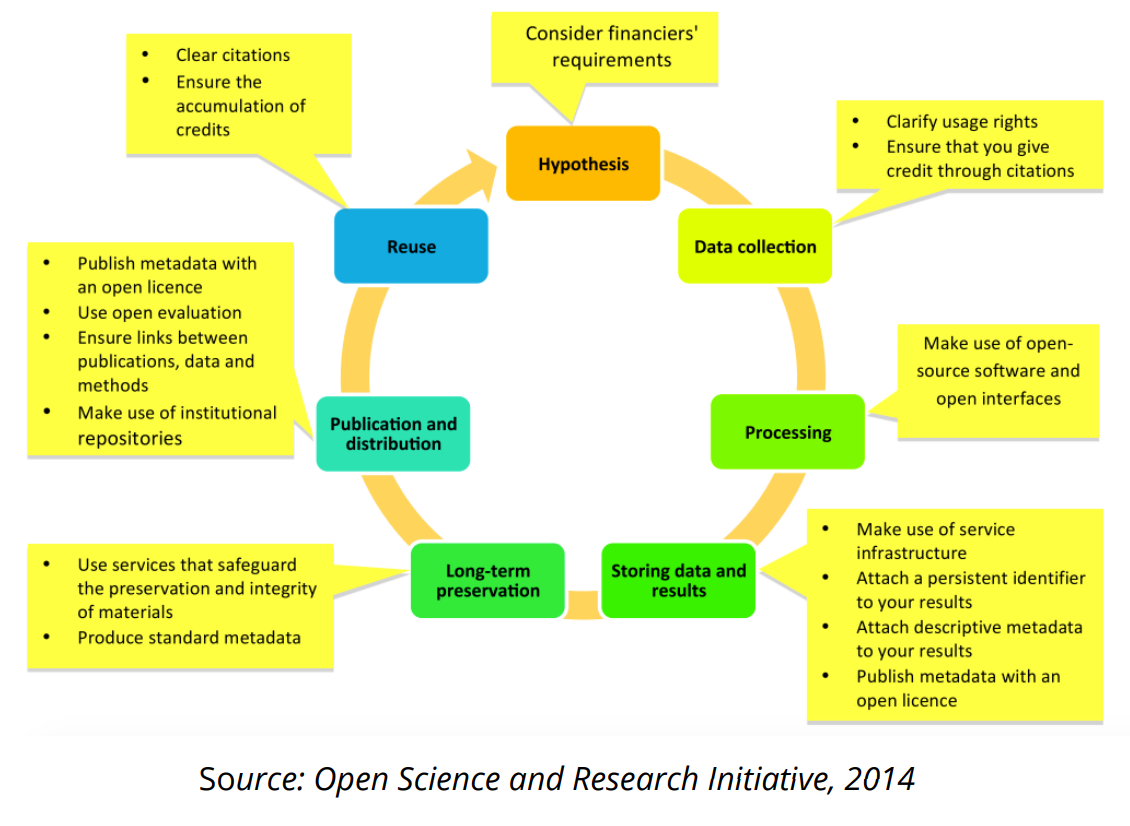Open source science has the potential to reduce wasteful spending while increasing diversity of research and innovation. The European Commission is dedicated to solving the financial, technical, interoperability, legal and regulatory issues surrounding open science. Moreover, they plan to implement the system as a standard among scientific institutions throughout the European Union. The Science Advisory Board believes that this is an important focus area that impacts our researchers globally and we are interested in sharing more information about traditional and alternative peer review publishing models with our members.
What is Open Science?

Fully open science is where every step of the research process is public and transparent. This includes all methodology and tools used, as well as data. In a modern data-driven scientific world, computational tools should also be made available to the public in this system. The goal of the system to make research methodologies and data reusable to other researchers, to eliminate waste and stimulate innovation in scientific discovery.
What is stopping progress?
Research has shown that scientists tend to only share their data with people they know personally (https://www.elsevier.com/about/open-science/research-data/open-data-report). This seems to be because it requires additional work to make data reusable for others and / or do not know how to properly manage their data. Many scientists are not appropriately trained in data science to easily transform their data for open source systems. Moreover, scientists are skeptical of data misuse, copyright/licensing, and ownership concerns. Whatever the solution will be, all of the technical and legal details will need to be sorted and standardized among institutions. Another issue to consider is data storage techniques, which may change over time, protection of legacy data.
In the European Union, Plan S, an initiative for open-access science publishing launched by Science Europe requires scientists and researchers who benefit from state-funded research organizations and institutions to publish their work in open repositories or in journals that are available to all by 2021. Under this new timetable, from January 2021, 13 of Europe’s national funding agencies and two major research foundations, the Wellcome Trust and the Bill & Melinda Gates Foundation, will require any scientist receiving one of their grants to make the resulting papers free to read immediately on publication, with a liberal publishing licence allowing others to download, translate or otherwise reuse the work.
As with other types of scientific publishing models, critics of the open source model think that it could be viable as a destination for publications, but that the mechanisms still need refinement and improvement. Many believe that these alternative models of peer review will meet resistance in the scientific community as long as scientists’ careers rely on which publications over the content in which they publish.
One thing is certain, the future of open science remain positive, yet undefined. Do you believe in traditional or alternative publishing models?
To read the full report please visit Science | Business.
Copyright © 2019 scienceboard.net



